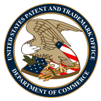Office of Chief Economist
The USPTO established the Office of the Chief Economist (OCE) in March 2010, with the appointment of Dr. Stuart Graham as its first Chief Economist. The Chief Economist is responsible for advising the Under Secretary and the Administrator for External Affairs on the economic implications of policies and programs affecting the United States intellectual property system. The Chief Economist initiates and oversees groundbreaking economic analysis in the field on the topics of intellectual property protection and enforcement, with the object of fulfilling the USPTO’s statutory obligation to provide the President (through the Secretary of Commerce) and the Administration with advice on intellectual property policy.
USPTO Economic Research Agenda
The OCE is embarking upon an aggressive economic research program to provide evidence on a range of matters relevant to policymaking and the effect of IP on economic outcomes more generally. These include:
(1) Relating IP to economic growth, performance and employment, including:
(a) IP and entrepreneurship.
(b) IP and wider economy-wide growth.
(2) IP in de facto standards, standard setting, and standards policy.
(3) Researching the economics of trademarks and trademark examination.
(4) Understanding the economics of USPTO initiatives, including initiatives to reduce application backlogs, by better understanding their costs, benefits, and effects.
(5) Analyzing the role that IP plays in the markets for technology and knowledge.
Report on Intellectual Property and the U.S. Economy: Industries in Focus (March 2012) - This report demonstrates intellectual property is widely used in the economy and the industries that use it most intensively account for a large share of economic activity for jobs, new products and services, and the prospect of longer and better lives.
Item Descriptions
(1) Understanding the Nexus between IP and Growth, Economic Performance, and Job Creation. Scholars have struggled with identifying how the holding of IP assets influences the individual performance of product-lines and companies, or the aggregate performance of the economy. This important topic demands further study, and new datasets on startup firms and entrepreneurship, coupled with access to data inside the USPTO and across government, offer us opportunities to make fresh progress on these important research questions. Planned deliverable: Economic research in the form of working papers and publishable articles, conferences, and support of studies in this area of inquiry. A preliminary focus will be the role of patenting in entrepreneurial activity and in the growth and survival of small technology startups, with a planned USPTO OCE White Paper in the 2012 cycle that will address technology entrepreneurship along with a more substantial examination of the role that IP plays in the broader economy, in creating and supporting the conditions for investment and growth.
(2) Examining the role of IP in De facto Standards, Standard setting and Standards policy. While the field has a reasonably good sense of the problems created by hold-up associated with IP protection in the standard-setting process, there is an inadequate body of research on how IP protection, and different IP approaches, affect the delivery of standardized platforms and associated upstream technologies and downstream products to the marketplace. This question has implications in international settings, and deserves further study by the OCE. Planned deliverable: Economic research in the form of working papers and publishable articles, as well as conferences and outreach with a community of interest in this area.
(3) Researching the economics of USPTO initiatives. In light of the several innovative initiatives being taken by the USPTO, it is desirable that the OCE continue to study these initiatives and their economic outcomes. For instance, the USPTO has announced a joint research project with the UKIPO to consider the economic costs – both to patent offices and to the economic system more generally – associated with patent examination backlogs. Planned deliverable: Economic research in the form of working papers and publishable articles. While analysis of various initiatives will be ongoing, research outputs on the backlogs question will include economic research beginning in Fall 2010, and a more comprehensive report in collaboration with the UKIPO following thereafter.
(4) Examining the economics of Trademarks. Recent scholarly evidence has begun to demonstrate that trademarks carry with them tremendous value, and are complementary to marketing and point-of-sale capabilities for individuals and companies. Important research questions include the consequences of relative-grounds examination on the value and utility of the trademark right, and – given the increasing value of intangibles across the U.S. economy – estimating the value of trademarks and their attributes. In order to adequately study these questions, the OCE must expend effort to regularize the trademark data and connect it, where feasible, to external data on economic activity. Planned deliverable: Research datasets, and economic research in the form of working papers and publishable articles, and conferences with a community of interest in this area.
(5) Understanding the role played by IP in facilitating the burgeoning Markets for Technology and Knowledge. The U.S. economy is increasingly becoming a knowledge economy, and economists are beginning to take account of the role that IP plays in supporting specialization in the supply of technology, and allows for a more transparent and efficient market for knowledge and technology. Topics of interest include the status and role of patent assignments, and the role played by patent quality and timely grants in knowledge markets. Creating and linking data on patent assignments, and market transactions more generally, to other economic data will provide us an opportunity to begin the task of adequately describing the economics of this marketplace. Planned deliverable: Economic research in the form of working papers and publishable articles, beginning in Fall 2010 and continuing through 2012.

